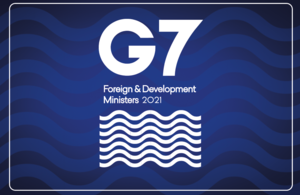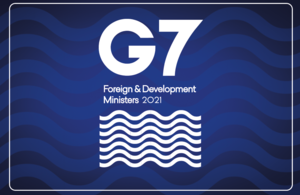Thank you Mr President and good afternoon colleagues.
Every year, member states gather here in the General Assembly Hall to review the global humanitarian picture, reflect on the year that has been and look ahead to future challenges.
But, having sat here a year ago and having listened to member states throughout the morning, there are a number of recurring themes that are, sadly, all too familiar:
Escalating and unprecedented levels of need;
More crises, in more places, lasting longer than before;
And demand for humanitarian assistance increasingly outstripping resources.
As conflict, climate change and COVID19 continue to drive and dominate humanitarian crises, it is patently clear that we are heading in the wrong direction.
We need to see a shift in the way we work – building new partnerships and developing tools to better address and anticipate humanitarian crises.
The UK approach going into 2022 will focus on three pillars: prioritisation, protection and prevention.
Firstly, we need to prioritise the delivery of effective humanitarian assistance to people in greatest need. This means ensuring responses better reflect the needs and voices of affected populations, as well as promoting humanitarian responses that are accountable, data-driven and cost effective.
Secondly, we need to protect the safety, dignity and rights of individuals in situations of conflict and crisis, especially women and girls, who are disproportionately impacted by gender-based violence and abuse. We will protect and champion the importance of humanitarian principles, norms and standards, whilst calling out those belligerents disregarding international humanitarian law and preventing populations from accessing the critical assistance they need.
And, finally, we need to prevent today’s problems from turning into tomorrow’s crises.
The UK will push for a shift among multilateral, IFI, development, peacebuilding and humanitarian partners to better prevent, anticipate and prepare for new crises, and rebuild resilience in protracted and recurrent crises.
This will include increasing investments in monitoring and early warning systems and prearranged finance to anticipate and act ahead of shocks and, in so doing, reduce the scale and impact of humanitarian crises.
Innovation, data and technology are at the heart of tackling these issues, and acting early. The UK will continue to lead in this area, using our world-class capabilities to ensure aid agencies are able to plan and prepare for disasters, improving the chances of saving lives and reducing suffering.
Mr President,
As we continue to face the combined effects of conflict, climate and COVID-19, we need to see a holitistic multilateral response.
This means harnessing big data and artificial intelligence, and the expertise of the private sector. It means aiming the power of climate finance at the most fragile contexts. It means the UN is making the full use of all the levers at its disposal, with development, peace and political actors all playing their role in preventing crises.
Since 2015, the UK has provided over £11.1bn in humanitarian funding to support the world’s most vulnerable people.
We are protecting our life saving humanitarian spend at around £1 billion a year.
But with needs rapidly outstripping available resources, it is vital we find new means to meet these challenges and use funding in smarter, more efficient ways.
By focussing on prioritisation, protection and prevention, we will be able to fund more nimble and flexible responses to humanitarian crises.
The UK is investing in earlier interventions to prevent further suffering, reduce growing humanitarian needs and ensure funding goes further.
We call on all member states gathered here today to do the same.
Thank you.

